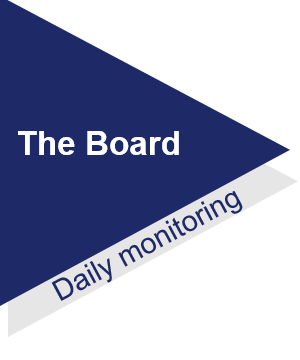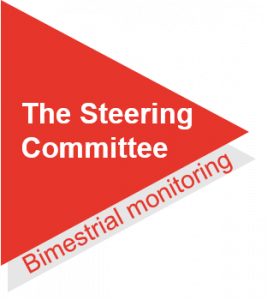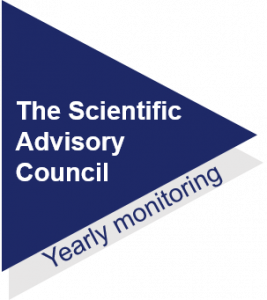The institute community spans all three faculties and almost all departments. The importance of computing and data analysis in these fields underscores the critical role of the institute in fueling cross-disciplinary collaborations.
Link to the document (in french) describing the missions of the institutes (Alliance Sorbonne Université).
In addition to the executive and advisory structures, a yearly meeting is organised by ISCD. It gathers representatives of the main structures (research laboratories, training structures, UFR, etc.) of the Alliance Sorbonne Université that are involved in ISCD activities. It is a unique opportunity to discuss modalities of participation and involvement.
Managing directorate

Mission:
- Coordination and animation of the activities of the research teams
- Setting up a budget and a development plan
- Reporting of the activities
Members:
- The scientific director: Mathieu Salanne
- A deputy director

Mission:
- Ensures that the decisions of the management are consistent with the objectives set
- Maintains the dynamics of the institute within the project-teams it represents, in particular by communicating the information to the members of the projects.
- Meets every two months.
- Scientific leaders of the team-projects
- The members of the Board

Mission:
- The scientific advisory council of ISCD is nominated for four calendar years by the President of Sorbonne University, following a joint proposition of the president of the committee and the director.
- The council is composed of 5 to 10 European or international renowned scholars, external to the Alliance Sorbonne Université, who provide scientific advice and guidance to the ISCD board.
- The Committee is responsible for all strategic decisions, interacts on a regular basis, and meets once a year at ISCD. The decision of the committee overrules the decisions of the other boards. In particular, it is the prerogative of the committee to establish and oversee the procedures for the creation of new research teams at ISCD, to select the research teams, and to evaluate them on a periodic basis, typically every two years.
Members: (2020-2023).
- Pr. Rémi Abgrall, scientific computing,
Institut für Mathematik & Computational Science, Universität Zürich - Pr. Michel Daydé, scientific computing, HPC
Directeur de l’Institut de recherche en informatique de Toulouse (IRIT),Toulouse
directeur du Comité d’Orientation pour le Calcul Intensif au CNRS (COCIN). - Dr. Virginie Grandgirard, scientific computing
IRFM – Institut de Recherche sur la Fusion Magnétique, CEA Cadarache - Pr. Claude Le Bris (président), applied mathematics
Centre d’Enseignement et de Recherche en MathématIques et Calcul Scientifique (CERMICS), Ecole Nationale des Ponts Paris Tech,
Responsable de l’équipe-projet Mathematics for materials (MATHERIALS), Inria. - Pr. Benedetta Mennucci, computational chemistry
Department of Chemistry, University of Pisa, Italy - Pr. Anthony Patera, numerical analysis, applied mathematics
Ford Professor of Engineering and Professor of Mechanical Engineering, MIT, USA - Dr. François Willaime, computational material sciences
Département des Matériaux pour le Nucléaire (DMN), CEA, Gif sur Yvette
